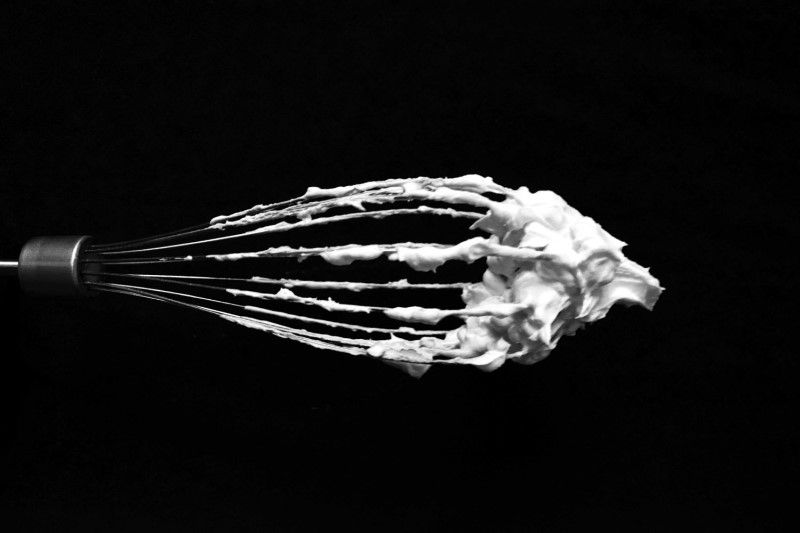WYSK: 08/05/22
This Week: OGT: ; 1. Ethics and Class; 2. iRobot Acquisition; 3. China and Taiwan; 4. Saudi Rehabilitation

What you should know from the week of 08/05/22:
- One Good Thing: The Great Barrier Reef sees some recovery
- Ethics and Class: Fascinating research on ethics and class, and the driving role played by greed;
- iRobot Acquisition: Amazon announces acquisition of Roomba-maker iRobot, providing stunning insight in consumer homes;
- China and Taiwan: Pelosi's visit to Taiwan, and China's response;
- Saudi Rehabilitation: The rehabilitation of the Saudi government's image through oil and sport.
One Good Thing:

The reef's northern and central parts have the highest amount of coral cover since monitoring began 36 years ago.
Wow!
Previous reports have noted sharp decreases in coral in the reef; reductions of like 50% in the coral populations. Coral has been consistently dying, so this is pretty wild news. It is hopeful news, but not final news:
These latest results demonstrate the reef can recover if conditions allow, Dr Hardisty says, but "acute and severe disturbances" are becoming more frequent and longer.
Ethics and Class:
https://www.pnas.org/doi/10.1073/pnas.1118373109
An eye-opening study from 10 years ago, but that I just saw this week. It is so significant that I am including it in first place, though! The authors of the study note that:
Seven studies using experimental and naturalistic methods reveal that upper-class individuals behave more unethically than lower-class individuals. In studies 1 and 2, upper-class individuals were more likely to break the law while driving, relative to lower-class individuals. In follow-up laboratory studies, upper-class individuals were more likely to exhibit unethical decision-making tendencies (study 3), take valued goods from others (study 4), lie in a negotiation (study 5), cheat to increase their chances of winning a prize (study 6), and endorse unethical behavior at work (study 7) than were lower-class individuals. Mediator and moderator data demonstrated that upper-class individuals’ unethical tendencies are accounted for, in part, by their more favorable attitudes toward greed.
That last bit is the key part. The research did not merely observe that "upper-class individuals behave more unethically than lower-class individuals," but specifically that the key driver appears to be greed. I'm immediately reminded of the Bible's admonition in 1 Timothy 6:10 that "For the love of money is a root of all kinds of evils. It is through this craving that some have wandered away from the faith and pierced themselves with many pangs."
In Study 5 and 6 of the research, the researchers identified that although social class and greed are tied (higher class pairs with higher levels of greed), attitudes toward greed were more significant than social class:
Testing our mediational model, when social class and attitudes toward greed were entered into a linear regression model predicting probability of telling the job candidate the truth, social class was no longer significant, ... whereas attitudes toward greed were a significant predictor...
But the real kicker is Study 7. The researchers observed that:
As shown in Fig. 2, in the neutral-prime condition [where participants had just been instructed to list three things about their day], upper-class participants reported significantly more unethical behavior relative to lower-class participants, t(45) = 2.04, P < 0.05. However, when participants were primed with positive aspects of greed [having just been instructed to list three benefits of greed], lower-class participants exhibited high levels of unethical behavior comparable to their upper-class counterparts, t(38) = −1.42, P = 0.17.
The research suggests that upper-class people are more unethical than lower-class people, but that the driver is that upper-class people are more greedy (the study does not determine if upper-class people get to that position because of greed, or if greed is inspired because of their position).
But I think there is cause for optimism here. We see that greed—this key driver of unethical behavior—is learned. Which is super exciting since it means that regulation (to change the structures rewarding greedy behavior), education, and most importantly the example of ethical and upright people (to inspire and correct) can shape our society to be more just and ethical. That's not guaranteed to happen and will still be a big task, but it is possible.
iRobot Acquisition:

Boy do we need antitrust!
On Friday that real-life Katamari Damacy, Amazon, announced a definitive merger agreement to purchase iRobot for 1.7 Billion in cash at $61/share (about 22% higher than the ~$50 share price before the merger was announced).
While it experienced a sharp price increase in the second half of July, iRobot's stock has been dropping sharply from a COVID-fueled high of ~$127 in March 2021 to a low in the mid $30s earlier in July of this year.
Despite Amazon's stunning wealth, this is still a significant decision; the acquisition will be their 4th largest ever behind Whole Foods, MGM Studios, and One Medical. Why spend so much to purchase a company that has underperformed in profits for the past five years? Data.
From The Verge's reporting:
When I spoke to iRobot’s Colin Angle earlier this summer, he said iRobot OS — the latest software operating system for its robot vacuums and mops — would provide its household bots with a deeper understanding of your home and your habits. This takes on a whole new meaning with the news today that Amazon has bought iRobot for $1.7 billion.
and:
The combination of Roomba, Alexa, Ring doorbells, and Amazon’s other smart home products give the company an incredible amount of data in a modern smart home. That will naturally lead to even more questions around privacy, and Amazon’s control over the smart home market.
iRobot's flagship vacuum cleaners have already been hoovering up data about your home, creating detailed maps of your living spaces. All of that data will shortly belong to Amazon.
It might sound kind of neat for Amazon to now be able to recommend coffee tables that will fit in your living room, or curtains that match your decor. But ultimately you're pinning your hopes on Amazon's benevolence. We've already seen Amazon share data without owner consent.
Do you really want your doctor (Amazon's acquisition of One Medical), your grocer (Whole Foods), your pharmacist (Amazon Pharmacy), your retailer (Amazon.com), the infrastructure for the websites you visit (Amazon Web Services), an advertiser (Amazon Ads), a maid (Roomba), a butler (Amazon Alexa), a doorman (Amazon Ring) all collecting data on the habits of you and your family, and using it as Amazon thinks is best? I'm unwilling to stake such intimate data on the gauzy promises of Amazon's discretion.
Furthermore, US Courts are increasingly using Terms of Service and the Third Party Doctrine to say that citizens have no reasonable expectation of privacy (and therefore the Fourth Amendment may not apply!) after granting companies access to data.
As discussed last week, data outlives the agreements it was collected under.
China and Taiwan:
https://www.washingtonpost.com/opinions/2022/08/02/nancy-pelosi-taiwan-visit-op-ed/
Alright, so Nancy Pelosi went to Taiwan this week. We've got to talk about why she went, and also how China is responding:
Why she went:
In her Op-Ed for the Washington Post, she lays out why she did it:
Some 43 years ago, the United States Congress overwhelmingly passed — and President Jimmy Carter signed into law — the Taiwan Relations Act, one of the most important pillars of U.S. foreign policy in the Asia Pacific.
...
Today, America must remember that vow.
...
In the face of the Chinese Communist Party’s (CCP) accelerating aggression, our congressional delegation’s visit should be seen as an unequivocal statement that America stands with Taiwan, our democratic partner, as it defends itself and its freedom.
...
Our visit — one of several congressional delegations to the island — in no way contradicts the long-standing one-China policy, guided by the Taiwan Relations Act of 1979, the U.S.-China Joint Communiques and the Six Assurances. The United States continues to oppose unilateral efforts to change the status quo.
But the real message is in her concluding paragraphs (emphasis mine):
Indeed, we take this trip at a time when the world faces a choice between autocracy and democracy. As Russia wages its premeditated, illegal war against Ukraine, killing thousands of innocents — even children — it is essential that America and our allies make clear that we never give in to autocrats.
When I led a congressional delegation to Kyiv in April — the highest-level U.S. visit to the besieged nation — I conveyed to President Volodymyr Zelensky that we admired his people’s defense of democracy for Ukraine and for democracy worldwide.
By traveling to Taiwan, we honor our commitment to democracy: reaffirming that the freedoms of Taiwan — and all democracies — must be respected.
This visit is about signaling to China that we'll respond more vigorously to an invasion of Taiwan than we did to the invasion of Ukraine. Is it going to be effective? I'm not sure. I think ultimately not. Our actual actions in Ukraine speak louder than our rhetoric. Furthermore a track record of Congressional inaction despite signaling, and a bitterly divided America will likely embolden China.
However, as Eliot Cohen wrote at the beginning of the Russian invasion of Ukraine: "Part of wartime leadership is theater, and the administration should embrace it." Even if this is just theater, it is still worthwhile.
How China responded:
Not well.
China's ambitions require control over Taiwan. There are different reasons for why this is—Taiwan's significance in the Island Chain Strategy, Taiwan's existence within the Nine Dash Line, China's cultural insistence that Taiwan is not distinct from China—but my belief is that an increasingly-racist Beijing can't afford to have an ethnically-Han country thriving under democracy. Their rhetoric is too dependent on the 'Chinese way' of doing things and purging ethnic minorities like Uyghurs, and Taiwan disproves the
China responded with sanctions against Pelosi, and by ending communication in 8 key areas:
- Between Military theatre leaders
- Ministries of Defence working meetings
- Maritime security dialogues
- Illegal migrant repatriation
- Criminal justice assistance
- Climate talks
- Cooperation on tackling transnational crimes
- Cooperation on anti-drugs measures
Additionally, the Chinese ambassador to France spouted off some alarming rhetoric stating: "After the reunification, we will do reeducation.” Additional Chinese figures have expressed similar sentiments of purifying Taiwan from the influence of separatists.
Saudi Rehabilitation:


Since we're speaking of greed and unethical behavior this week, let's talk about the rehabilitation of Saudi Arabia's image. Far from being treated as a "pariah" as Biden promised, Saudi Arabia's reputation has been recently buoyed up by a visit from an American president, and 'sportswashing' through golf in the US hosted by former President Trump (including statements from Trump that 'nobody has gotten to the bottom of 9/11' and Saudi culpability).
NPR uses the following explanation of sportswashing:
"Sport is loved and played around the world, it is a giant unifying force, and it’s also a multi-billion dollar industry," the organization wrote. " ... By associating themselves with sport, leaders are seeking to position their country in line with that magic. They want to bask in reflected glory, and thus lighten their image."
During the recent Saudi-bankrolled tournament in Bedminster, the golfer Phil Mickelson gave a feeble interview where he apologized vaguely for criticizing the Saudis in the past (you can read the transcript if you are looking for a bad time).
Pelosi's visit to Taiwan contrasts strongly with Biden's visit to Saudi Arabia. One demonstrates an America that is willing to stand up for our ideals against threats from foreign powers. The other demonstrates an America that will happily backtrack on promises and surrender ideals for economic gains and political wins. One is the America we should be and want to be, the other is the America we have been too often.
Interest piqued? Disagree? Reach out to me at TwelveTablesBlog [at] protonmail.com with your thoughts.
Photo by Tamara Gak on Unsplash


